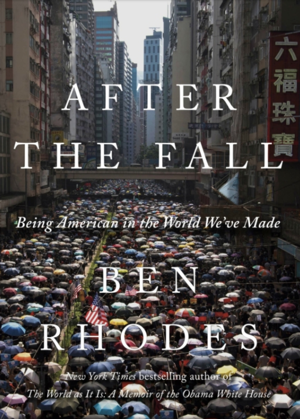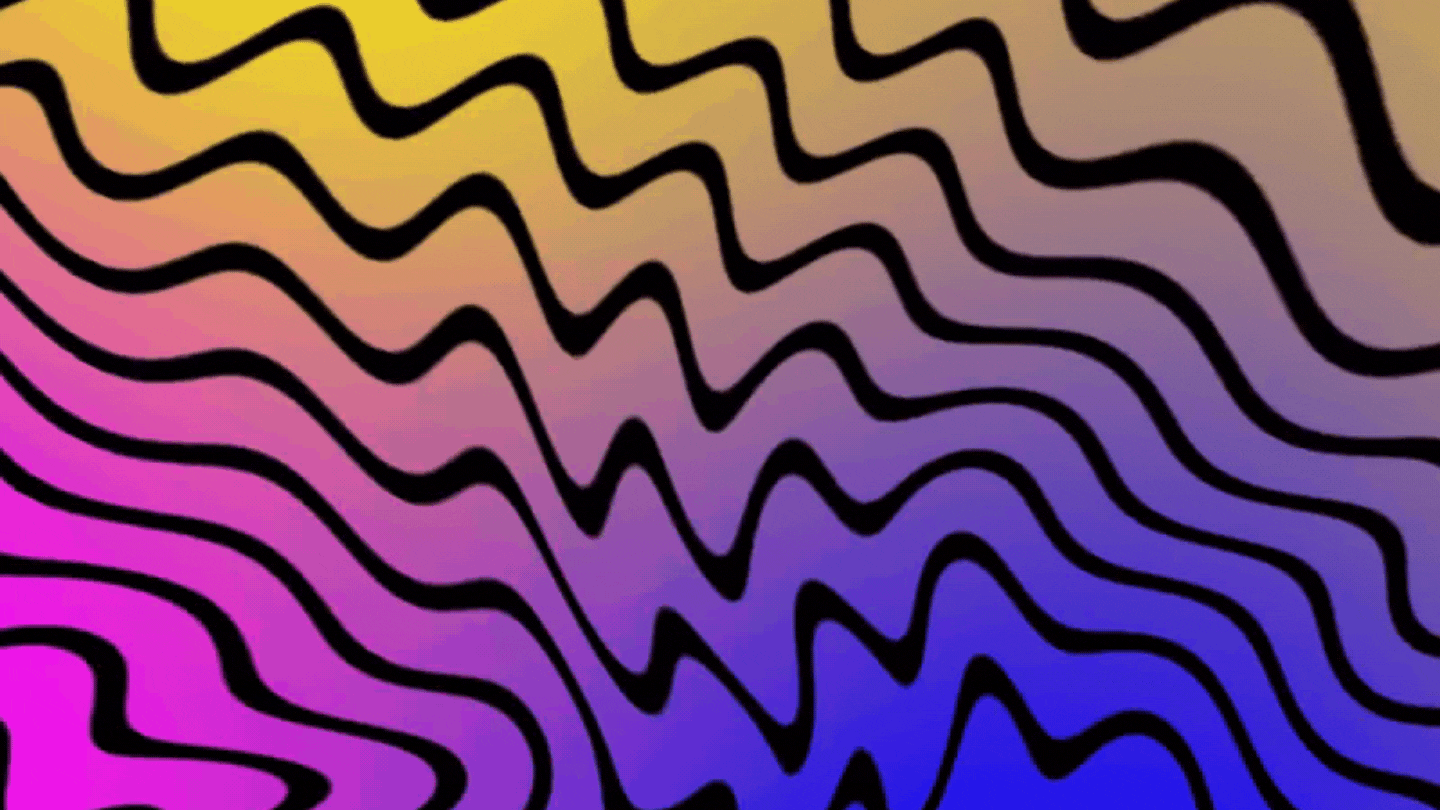Europe’s largest invasion since World War II is a logical outcome of Vladimir Putin’s dominance of Russian politics in the 21st century, a reminder that grievance-based ethno-nationalism and authoritarianism lead inexorably to conflict. Putin’s efforts to reconstitute empire and “protect” Russian speakers beyond national borders tap into currents of history running deep underneath our collective experience. And in many ways, the tolls of the war—cities reduced to rubble, civilians caught amid armies, refugees moving en masse across European borders, threats of nuclear annihilation—recall the circumstances that shocked world powers into creating an international system to prevent another world war. Perhaps it is no coincidence that at precisely the time when living memory of World War II is fading away, humanity has failed to heed the lessons of our worst history.
Yet despite its historical echoes, the war also feels like the product of the peculiar circumstances of our post–Cold War era. The backlash to globalization, consumerism, and cultural homogeneity sent strongmen in search of an updated brand of identity politics. The corruption that enriched kleptocrats isolated them from accountability, engendering cynicism and apathy within societies. The creation of national-security states veiled the machinations of governments while providing endless justifications for defensive aggression. New technologies facilitated the dissemination of propaganda and disinformation on a mass scale, so that it’s hard to tell where Putin’s invented pretexts end and his own motivations begin.

These forces are not unique to Russia; they are all around us, and have left us in an unsustainable situation. How could this many nationalist autocrats emerge in so many different places, working from such a similar playbook? How much more strain could a creaky international system bear before it broke? How could problems be solved, wars avoided, and democracy defended when truth and objective reality were becoming so flexible, with people locked in different closets of information? How much longer could the pressures build before an explosion?
Putin has long been a source of these pressures, simultaneously dragging us back into the darker recesses of history while capitalizing on the vulnerabilities of our present moment. He was at the vanguard of autocrats who claimed power through democracy only to dismantle it. He enriched his circle by selling commodities to the West while lambasting its immorality. He disrupted the international system by taking advantage of the obstruction it afforded him. He suppressed dissent while flooding social media with disinformation that radicalized not only Russians but communities around the world. Vladimir Putin is both a figure of the past and a man of his time.
Over the course of 2019 and 2020, I spoke with prominent Russian critics of Putin—including Alexey Navalny, his most effective and relentless domestic opponent—for a book about the rise of authoritarianism around the world. Those conversations about the authoritarian machinery that Putin had built were laced with foreboding about the future. Ironically, given what has been unleashed in their name, Russians feel the weight of history and how it can go wrong more acutely than most. The immensity of Putin’s corruption and the triumphalism of his nationalist aggression bespoke an excess that made overreach seem inevitable. No, this was not sustainable.
Ukraine has the tragic misfortune of being the venue for this overreach. Its very existence places it at the center of the overlapping circles of Putin’s grievances. The last frontier of NATO expansion. The largest foothold for democracy along Russia’s borders. The litmus test for whether Putin could reconstitute not the Soviet Union—he’s not seeking to annex Kyrgyzstan or return to communism—but rather the Russian empire. But Ukraine also encompasses the contradictions of our recent era. Its openness rendered it vulnerable to corruption, which could be leveraged for influence. Its hardening commitment to national sovereignty was linked to a determination to join supranational clubs such as the European Union and NATO. Tragically, Ukrainians’ determination to survive made them a bigger target for Putin’s aggression.
In 2004, Putin summed up Russia’s post-Soviet history and his own worldview succinctly: “We demonstrated weakness, and the weak are beaten.” Clearly, he calculated that Ukrainians—and the wider democratic world—had weakened enough to be beaten. Thus far, it is Ukraine’s president, Volodymyr Zelensky, who is upending Putin’s logic. By standing up to a bully, Zelensky has stripped him of his capacity to intimidate. A younger man—communicating through selfie videos and Zoom, wearing a T-shirt instead of a suit, often surrounded by people instead of sitting at the end of a large table—Zelensky has come to encompass a populism not of cynicism and grievance but of idealism and community. In his fearlessness he resembles Navalny, who has taunted Putin from his prison cell and predicted that the war will be Putin’s downfall.
Out of this kind of righteous rage—shaking democracies from complacency, forcing citizens to discard the luxury of cynicism, rejecting the inevitability of autocracy—perhaps a new world can be born. We have reached a hinge of history. At issue is not just the future of Ukraine but that of the world that will emerge on the other side of this war. If we heed the lessons of this moment, we can rebuild from the rubble a renewed international order that once again places democratic values over the more transitory impulses of profit and immediate gratification. If we don’t, things could get much worse.
Speaking with me nearly two years ago, Navalny distinguished his own nationalism from Putin’s, while anticipating the inevitability of Putin’s overreach. He, and the other Russians I spoke with, foresaw the dangerous moment that we have now reached. What neither they nor I can predict, of course, is how it will end.
Alexey Navalny has been a difficult adversary for Putin in part because he’s not the kind of Russian oppositionist who tells Americans what they want to hear. When we spoke in the spring of 2020, this became obvious as soon as I broached the subject of Ukraine, the country that—in some way—had precipitated everything from Russia’s offensive against American democracy to Donald Trump’s first impeachment. “You cannot just give Crimea back,” he told me.
Navalny reminded me that his father was Ukrainian and his mother Russian, so he grew up spending time in both countries. He described childhood visits to his Ukrainian family after the collapse of the Soviet Union, when these visits were now to an independent country. “All through the ’90s, we have a family argument. Every dinner, every family gathering, we have this discussion: What is better, to preserve the Soviet Union or to be divided?”
From the Ukrainian perspective, the answer was clear. “We were feeding you,” he recalled his Ukrainian family telling him, since Ukraine had been the breadbasket of the Soviet Union. “‘Now we’re independent and we’re going to live much, much better.’ And this was kind of a central idea.” Central to the forces that drove Ukrainians into the streets in the Orange Revolution in 2005 and onto the Maidan in 2013. Central to Ukraine’s desire to draw closer to Europe, to join the European Union and NATO. To be more prosperous, and free of Russian domination—that was the Ukrainian desire.
From the Russian perspective, he said, the answer was also clear.
“My mother, who is Russian, and I would say, ‘Give us Crimea and get the hell out of here,’” he recalled. Crimea is separated from mainland Ukraine and Russia, a peninsula that sticks out into the Black Sea. Its population is majority ethnic Russian, but the territory was shifted to Ukraine in the middle of the 20th century, part of the opaque Kremlin maneuvering of people and places designed to shore up the Soviet empire. “It was something deep inside every Russian—this understanding that the people in Crimea are Russian people. And without any real reason, they were given to Ukraine by Khrushchev.”
Navalny clearly saw himself as someone who could become the president of his country. And this, in his view, meant not succumbing to the American position on Crimea. “If I’m president,” he said, “I want to have something fair. A real, fair referendum under independent observers.” This he contrasted with the rushed Potemkin referendum on Crimea’s future that took place under the watch of Russian occupiers in 2014. “Everyone will understand the results of this referendum,” Navalny told me, anticipating—of course—that the result would be the same: Crimea would remain a part of Russia.
Instead of criticizing the outcome of Putin’s annexation of Crimea, Navalny focused on his motivation: Putin’s fixation on the United States and an encroaching West, the constant warnings that Crimea would become a base for NATO ships or nuclear weapons. “He’s playing with something real,” he said of Putin’s Ukraine policy and broader political project—that sense of making amends for the humiliations of the past. “But he’s twisting it, he’s perverting it, he’s using the huge apparatus of propaganda and media to connect it to anti-American and anti-Western propaganda.”
To Navalny, approaching the issue of Crimea as a kind of geopolitical chess move diminished the very legitimacy that should buttress the union of Crimea with Russia, the fact that it was—to him—the right thing on the merits. It also bespoke a dangerous and self-destructive habit of Russian leaders to seek legitimacy at home through the pursuit of conquest or power abroad. “These delusions about empire,” he said, “this is the most dangerous stuff for Russia. Because it is why we were poor all the time. We were poor back in the Russian empire with the czars because they spent everything on empire. The same in the Soviet Union. Back in the U.S.S.R., we paid for Cuba, we paid for half of Africa, we paid for half of Asia. So we were poor. People don’t have a color-TV set in their apartment, they don’t have any cars even in the ’80s, but we spent billions of dollars around the world.”
This imperial pursuit also allowed leaders to obscure their own corruption, distracting people from their own lot in life by offering a connection to some glory-seeking project. In the absence of a program, Putin’s campaign slogan had been simply, Putin’s Plan Is the Victory of Russia. Barack Obama used to tell me: In the long game, a politician’s strength can always become his weakness. This could become true for Putin and his total identification with the effort of once again projecting Russian strength abroad. “Can’t we spend our energy and the money of our country for ourselves?” Navalny asked incredulously. “Syria,” he said, referring to Putin’s intervention on behalf of Bashar al-Assad, which was viewed as a strategic masterstroke by many Western analysts, “it doesn’t work at all. They wanted to repeat this trick from Crimea and the Ukraine war. But people are so annoyed. Syria?” he repeated, as if the absurdity were self-evident.
“Why should we fight with these kinds of guys? We’re restoring Aleppo. Repair some roads here!”
As usual, the thing that grated most on Navalny about Putin’s rhetorical broadsides against the West was how they elided the extent to which everything Putin did was in service of power and profit. “What is the best response to Putin?” Navalny asked, clearly prepared to answer his own question. “Look, if the West is so mean and bad and ugly, and there are gays everywhere and the gay marriages, and morality is dying—which they are talking about all the time—my response is: I’m showing that these guys who are blaming the West have a palace somewhere in France. Showing people they are using their families, and their nostalgia to live in a great country—‘Make Russia great again’—they’re using it for their own personal good and personal profit.” Navalny paused for effect. “We can have a great country, who can be a leader of Europe and one of the best countries in the world, without that stuff.”
Navalny still believed that Putin’s house of cards was going to collapse at some point, the same way the czars’ did, the same way the Soviets’ did, perhaps the same way the United States’ did under Trump. Putinism may have started from something pure, something visceral, that humiliation of the post-Soviet years, but it had been corrupted, twisted, and rendered devoid of meaning—particularly as it spread beyond Russia’s borders. Perhaps Putin was marching himself over the precipice.
What sustained Navalny was anger at the state of things around him. He was, he told me, determined to “preserve and keep my level of rage to stay in politics.”
What sustained the rage? I asked him.
“It was lying,” he said. “The Soviet Union was an empire based on a lie. And Putin’s Russia is a country based on a lie.” He had seen it firsthand, confronting corruption schemes in Moscow courts and finding that the legal apparatus that was supposed to enforce fairness was on the take. “You are facing these people in the courts and they are lying to you.”
On August 20, 2020, Alexey Navalny was poisoned and nearly killed.
Like Boris Nemtsov’s death or the foreign intervention in the 2016 American presidential election, the details of the story were murky and would change over time, but the gist of it was again clear: Putin was behind this. Watching this, thinking of all the various reasons that Putin may have had for doing it—the messages he intended to send to Navalny, other oppositionists, or the wider world—I knew that his motivations boiled down to one thing: He did it because he could.
Do we want to live in a world where innocent people are poisoned with impunity? What kind of people would do that, and what dynamics enable them to get away with it? Sometimes people like Navalny are able to actually win power, to see things change. But perhaps even more powerfully, in their darkest moments they show us the true nature of those they oppose.
In early 2016, I met with a group of Russian writers in a small room in the West Wing. It was one of those meetings that broke up the monotony of my days, that peculiar opportunity you have, when serving at high levels of government, to choose to meet with a group of interesting people. In this case, it was a handful of writers sponsored by PEN, the organization that supports journalists and authors facing oppression around the world. I remember the familiar feeling of meeting with a group of people whom I could not possibly seem to help. Throughout the meeting, I was distracted by the fact that one of the women looked uncannily like my mother, which led my mind to wander and wonder just how far east my family’s journey had begun before the pogroms drove them across Poland and then to America. I asked the writers if they had any concerns about being affiliated with an American organization like PEN, or about meeting with people like me. No, they answered. It was their choice. What they wanted was not so much help as the simple opportunity to share their experience and perspective, which is, after all, a starting point for writing itself.
One of the writers in that 2016 meeting was Maria Stepanova. Maria had come of age in the ’90s and had established herself as one of Russia’s leading poets, in addition to being a novelist, a journalist, and the publisher of a crowdfunded website on news and culture. In the spring of 2020, I noticed an interview in which Maria spoke about the dark humor of being Russian, the realization that everyone has two identities: the one put forward in public and political spaces, and the private life lived behind closed doors. I thought she could help me make sense of the ways in which politics and identity in our two countries had blended in such a disorienting way.
After the collapse of the Soviet Union, Maria told me, “Russia had become a country that has forgotten what it means to have a history, a country that has fallen out of history.” It had become a country with a history filled with ghosts—the enormous suffering of the Soviet years, along with the sense of loss that accompanied the collapse of the Soviet Union. And it was ripe for something to fill that vacuum.
When Putin retook the presidency in 2012, Maria sensed a shift in him. From my perspective, this reflected the political calculation of a man who could no longer count on high oil prices to lubricate his corruption and consolidation of power, a man in need of legitimacy who turned to a convenient nationalism. But to Maria, Putin’s shift also reflected a man who felt politically and personally wounded at home when his return to office was met by huge demonstrations led by the likes of Alexey Navalny. “These were beneficiaries of his reign,” Maria said, referring to the middle-class Muscovites who protested in the streets, “people that he was identifying himself with in a way.” Perhaps Putin was like Russia—a man who felt himself falling out of history. Perhaps the cold, corrupt logic of power was not his sole source of motivation—to a man like Putin, falling out of history can engender its own rage.
After his reelection, Putin gave a speech to an enormous crowd in Moscow in which he quoted the great Russian poet Mikhail Lermontov. In one of Lermontov’s most famous poems, he wrote about the Napoleonic Wars, the first of two crises when Russians put aside their differences to repel an enemy at the gates. “We shall die before Moscow, as died our brothers. To die we swore, and our oath of fealty kept on the field of Borodino.” When Putin read these lines, Maria recalled, he had tears in his eyes. Putin saw the collapse of the Soviet Union and the ensuing tide of globalization as another advance on Moscow, embodied in those 2011 protests led by Western-oriented Muscovites.
With his attacks on Ukraine in 2014, Putin rejoined history—the history that has dominated most of humanity’s time on the planet, when nations fought wars over territory and reconquered places that had been taken away. Blood and soil. Of course, Putin framed that conquest as necessary to stop another enemy at the gates of Moscow. Like everyone else I talked with, Maria noticed the omnipresence of a virulent patriotism inseparable from the person of Putin. But she also noticed a broader effort to reshape the consciousness of the nation. “I noticed the difference in the amount of violence around you,” she said, “on television, social networks, etcetera. It is violence you feel in the air. But the level of actual violence was quite low.”
Compared with the battles of Russia’s past, the actual fighting in eastern Ukraine was a small endeavor affecting mainly the people there and the few thousand Russians sent furtively across Ukraine’s borders. But there was something brutal and infectious about the propaganda that went along with it. I noticed it at the time. In memes that anticipated American conspiracy theories such as QAnon, Russia’s enemies were cast as pedophiles, sexual deviants, and diabolical criminals. This ability to manipulate and mobilize the national psyche while keeping the stakes relatively low represented a breakthrough for Putin, making easy use of America’s unregulated and sensationalizing social-media networks. “People are happy to be violent in the social networks,” Maria said. “In that space, there has been rhetorical violence in Russia for the last 10 years, through the discourse of hate on social networks.”
Maria observed that the discourse was now “tracking something in the unconscious from the dystopia of the 20th century.” For Russia, that included everything from Stalin’s purges to its war in Afghanistan to the collapse of the Soviet Union. Even the violence of Chechnya, the terrorism of the early 2000s, the murdered children of Beslan, still lingered. Whether it was out of conviction, for political convenience, or—more likely—some mix of both, Putin knew how to make Russians feel that they were reentering history. The assassination of Boris Nemtsov and the poisoning of Alexey Navalny can be seen as an extension of that trauma, actions that keep history alive.
Maria volunteered that if she had the opportunity to vote for Navalny for mayor of Moscow again, she would do so. But while his single-minded focus on corruption represented a needed change, she did not think it was sufficient. Instead, she said, a more radical shift had to take place. To her, this was the other side of the coin from Navalny’s interest in upending a corrupt cabal: the simple notion that politics and government had to be rooted in truth. “People are yearning for a sense of truth, for a certain sense of reality that is always being distorted. People are asking for something that is based on an ethical frame.”
The danger of the other path is catastrophe. The history that Putin had reentered was the older kind, which inevitably leads nations down rivers to the heart of darkness, borne on the currents that gave rise to fascism and communism, Hitler and Stalin, two men who caused the deaths of tens of millions of Russians. When history appeared to come to an end at the conclusion of the Cold War, the specter of another world war was lifted, and with it some of the sense of drama that Putin had tapped into. And while wars fought online were not often tied to actual violence, a dizzying array of narratives recirculated those old 20th-century forces in new packaging—in particular, a creeping and sometimes casual fascism that suited Putin.
As a Russian, Maria knew how this kind of history could hurt people, in ways that Americans, too often, do not. Every Russian had been touched by World War II. Every Russian family had suffered in some way through the Soviet times. This was the main thing she had to tell us Americans, I realized—this warning. She felt the return of history. “I am afraid of some catastrophe that is going to happen,” she said to me in 2020, referring to her state of mind the past few years. “I feel it in my bones. I am sharing this with my compatriots: There is going to be a new war, World War III, or the gulags, or the trials.”
This post is excerpted from Rhodes’s recent book, After the Fall: Being American in the World We Made.



